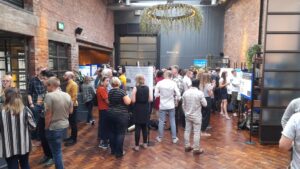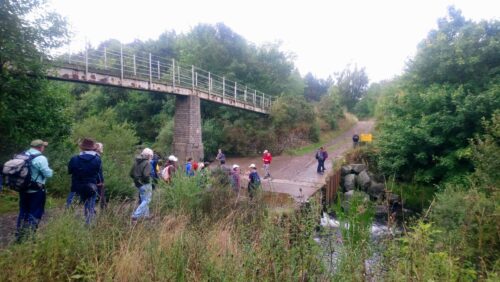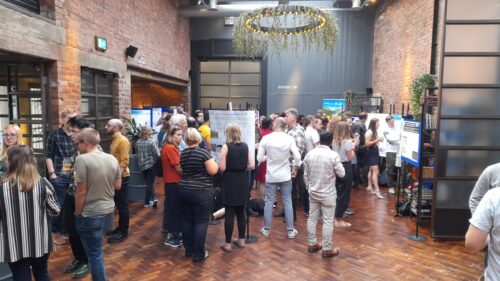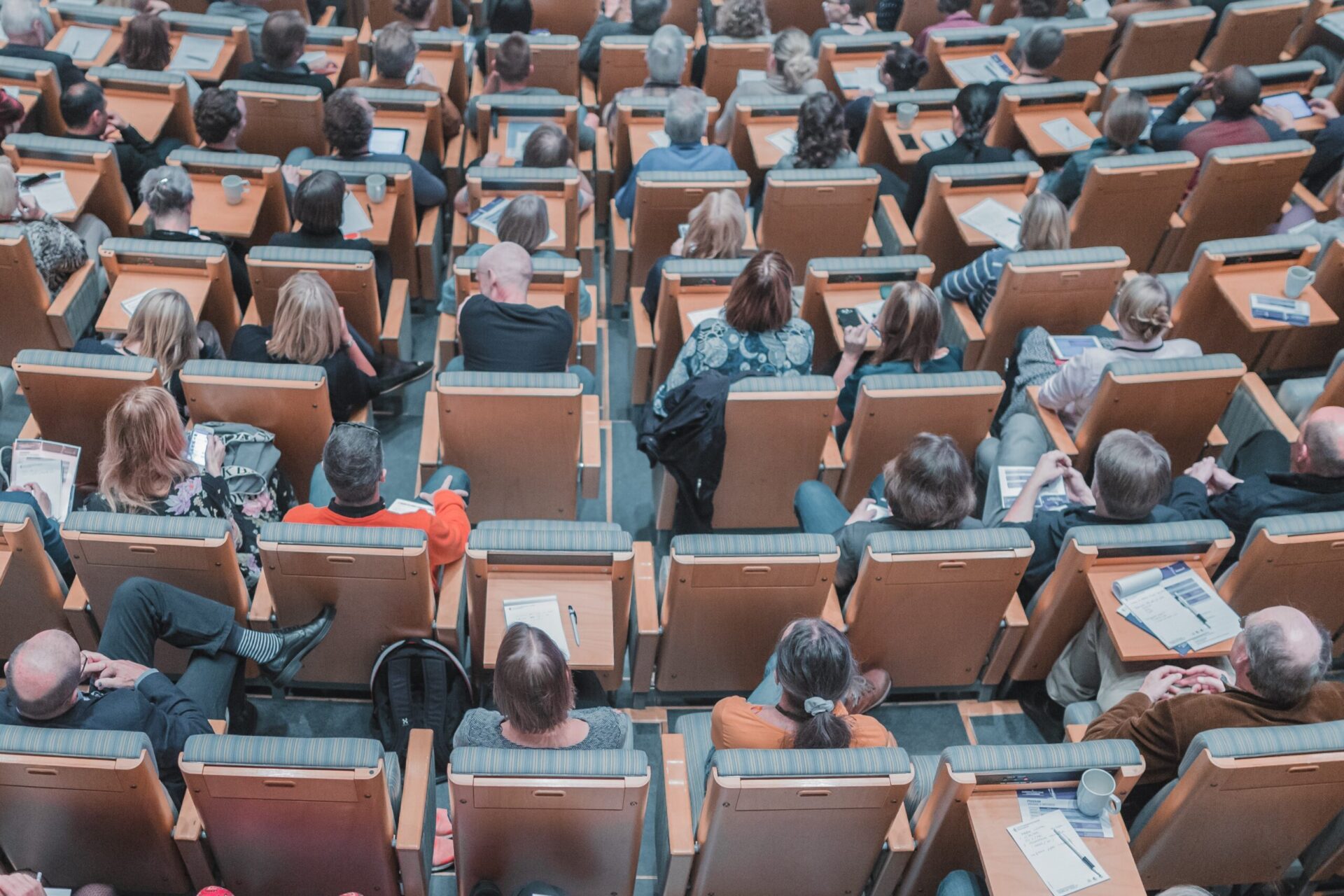The British Society for Geomorphology hosts an annual conference each year, where we explore all facets of geomorphology through talks from members across the society. This ranges from academic research to applied geomorphology case studies and learning. A conference dinner is held with an Awards ceremony.
2025 British Society for Geomorphology Annual Meeting
This year the British Society for Geomorphology (BSG) Annual Conference, incorporating the 3rd Cuchlaine King Symposium, will be hosted by the University of Leeds, specifically the School of Geography, the River Basin Processes and Management research cluster and water@leeds. For full and up to date information, please visit the conference website: University of Leeds BSG Annual Conference.
This year will be extra special as we are celebrating the 50th anniversary of the journal Earth Surface Processes and Landforms, which has its origin at Leeds and for which there will be a special issue this year with the theme ‘50 years of changing geomorphological processes and landforms’.
Abstract submissions have now closed but registration is still open with the early bird deadline of 31st July fast approaching!
Check out the highlights from 2022 further down the page.

The BSG Annual Conference is the most important event in the BSG calendar, bringing together geomorphology researchers and professionals to share their work and network with peers. This year the conference will be held at the University of Leeds at Cloth Hall Court, in the city centre.
The oral and poster presentation sessions provide an excellent opportunity to share your latest research and practice, while the early career researcher and professional geomorphology workshops will offer a great chance to develop technical and transferable skills alongside new or familiar peers.
We will celebrate the BSG Medal and Award winners through keynote presentations, and look forward to hosting the third Cuchlaine King Symposium, supported by Earth Surface Processes and Landforms. The conference dinner will be hosted by the fantastic Royal Armouries on Wednesday 17th.
The BSG Annual Conference has long provided a platform for early career researchers to share their work in a collegial and supportive environment, and we particularly welcome contributions from early career researchers and practitioners.
There will be a pre-conference fieldtrip with details to be announced. Information on the conference programme and the Cuchlaine King Symposium will be available shortly. The latest information can be found on the BSG2025 website.
Abstract submissions have now closed but registration is still open with the early bird deadline of 31st July fast approaching!
Local organising committee:
Prof Jonathan Carrivick
Prof Joseph Holden
Dr Megan Klaar
Prof Mark Smith
Prof Duncan Quincey
- Abstract deadline: 1 July 2025
- Early bird registration deadline: 31 July 2025
- Conference begins: 16 September 2025
For all queries please contact BSG2025@leeds.ac.uk
The 2022 BSG Annual Conference was held in Northumbria. Check out the highlights below and view a blog post from our Postgraduate Sub-Committe Chair Marina.
Pre-conference Fieldtrip
The pre-conference fieldtrip took place on Sunday 4th September. Participants headed to a series of remote Northumberland sites of geomorphological interest, with a primary focus on sites that were part of active or planned river restoration projects, and/or where river channels and their floodplains have been subject to recent extreme geomorphological perturbations linked to historical intervention. The trip was led by professional geomorphologists from the Environment Agency.

Postgraduate Workshop - Grants, Geomorph Jobs and Beyond
The postgraduate workshop provided a forum to discuss and plan an individuals future in Geomorphology. The workshop discussed all things grants and funding related with a great panel of academics.

Professional Workshop - To Model or Not to Model
The professional workshop held a discussion around the benefits and disadvantages of modelling of applied geomorphological projects.

Conference presentations and talks
The conference took place from Monday afternoon to Wednesday afternoon, covering a wide range of topics including fluvial, glacial, coastal, desert and planetary geomorphology.
Poster Presentation and Networking Event
On the Tuesday evening a networking event was held in the impressive Wylam Brewery, set in the beautiful grounds of Exhibition Park. A wide variety of posters were presented covering the latest research in the field of geomorphology as well as practical case studies from the applied/professional geomorphology attendees.

Feedback from this years attendees:
‘I would like to point out the amazing British geomorphology community that attended the event. From industries, professors, to Phd students, the friendship and network that I created during the event was unique. I will definitely attend the next events.’ (Gustavo Nagel, Southampton University)
‘The BSG 2022 Conference fieldtrip was a fantastic opportunity to see applied geomorphology in action. We visited two upland river sites which have been historically modified and are the focus of planned river restoration activities. It was great to hear and discuss river science, options and challenges for restoraiton in the field with a diverse group of practitioners and researchers. The trip highlighted the importance of linking research with practice on the ground. I enjoyed the trip and would recommend any one with an interest in geomorphology to join future BSG fieldtrips’ (Hannah Joyce, River Restoration Centre)



